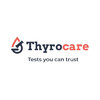Filter interviews by
Apollo Hospitals Medical Officer Interview Questions and Answers
Apollo Hospitals Medical Officer Interview Experiences
7 interviews found
I appeared for an interview in Mar 2025, where I was asked the following questions.
- Q1. Types of parasites
- Q2. Classification of antibiotics
- Q3. Hiv mode of action
I appeared for an interview in Mar 2024.
(2 Questions)
- Q1. Management of dog bites,snake bites
- Q2. Management of emergency situation like acute mi
I applied via Naukri.com and was interviewed in Jan 2024. There was 1 interview round.
(5 Questions)
- Q1. What is the medical analysis?
- Ans. It ia s science profession that links health science with suitable techinques and aims to ensure and safe,effective and accurate test results.
- Q2. What is the name of all body test?
- Ans. Blood and lipid profile test.
- Q3. What analysis types are used in medicines?
- Ans. Decriptive,Diagnostic
- Q4. Which medical test for MBBS?
- Q5. What is a full blood panel?
Interview Preparation Tips
I appeared for an interview before Apr 2024, where I was asked the following questions.
- Q1. Regarding previous work experience
- Q2. How many years do you work here
I applied via Walk-in and was interviewed before Nov 2021. There were 3 interview rounds.

No question asked at time interview
(3 Questions)
- Q1. No asked questions at time interview
- Q2. No asked questions at time interview k
- Q3. No asked questions at time of
Interview Preparation Tips
Interview Questionnaire
6 Questions
- Q1. About Emergency Management.
- Q2. Ecg finding in MI
- Q3. Chest x-ray findings
- Q4. Dosage of medicine
- Q5. Emergency management of MI
- Q6. Mainly emergency management.How to proceed for provisional diagnosis
Skills evaluated in this interview
I applied via Walk-in and was interviewed in Aug 2020. There were 3 interview rounds.
Interview Questionnaire
2 Questions
- Q1. How did u get to know about this hospital
- Q2. Your work experience
Interview Preparation Tips
Top trending discussions






Interview questions from similar companies

I applied via Indeed and was interviewed in Oct 2020. There were 3 interview rounds.
Interview Questionnaire
4 Questions
- Q1. How do you deal with a patient having hypoglycaemia?
- Q2. How do you manage a burns patient?
- Q3. How much salary are you expecting?
- Q4. Have you worked in an OPD before?
Interview Preparation Tips

I appeared for an interview in Apr 2025, where I was asked the following questions.
- Q1. Pain score OPQRSTU
- Q2. Differential diagnosis of abdominal pain

Medical Officer Interview Questions & Answers
Paramount Health Services Tpaposted on 1 May 2022
I applied via Approached by Company and was interviewed before May 2021. There were 2 interview rounds.

(1 Question)
- Q1. All medical knowledge check
Interview Preparation Tips
Apollo Hospitals Interview FAQs
Tell us how to improve this page.
Apollo Hospitals Interviews By Designations
- Apollo Hospitals Staff Nurse Interview Questions
- Apollo Hospitals Pharmacist Interview Questions
- Apollo Hospitals Hospital Pharmacist Interview Questions
- Apollo Hospitals Nursing Staff Interview Questions
- Apollo Hospitals Medical Officer Interview Questions
- Apollo Hospitals Medical Laboratory Technician Interview Questions
- Apollo Hospitals Lab Technician Interview Questions
- Apollo Hospitals Registered Nurse Interview Questions
- Show more
Interview Questions for Popular Designations
- Medical Coder Interview Questions
- Resident Medical Officer Interview Questions
- Duty Medical Officer Interview Questions
- Dental Surgeon Interview Questions
- Senior Medical Officer Interview Questions
- Factory Medical Officer Interview Questions
- Emergency Medical Officer Interview Questions
- Casualty Medical Officer Interview Questions
- Show more
Overall Interview Experience Rating
based on 4 interview experiences
Difficulty level
Duration
Interview Questions from Similar Companies
Apollo Hospitals Medical Officer Reviews and Ratings
based on 31 reviews
Rating in categories
Pune,
Wagholi
0-2 Yrs
₹ 3.6-16.8 LPA
|
Staff Nurse
1k
salaries
| ₹1.8 L/yr - ₹5.5 L/yr |
|
Pharmacist
688
salaries
| ₹1.5 L/yr - ₹4.2 L/yr |
|
Assistant Manager
242
salaries
| ₹4.8 L/yr - ₹11.5 L/yr |
|
Clinical Pharmacist
232
salaries
| ₹1.4 L/yr - ₹4 L/yr |
|
Nursing Staff
224
salaries
| ₹1.5 L/yr - ₹5 L/yr |

UnitedHealth

Fortis Healthcare

Dr Lal PathLabs

Narayana Health
- Home >
- Interviews >
- Apollo Hospitals Interview Questions














